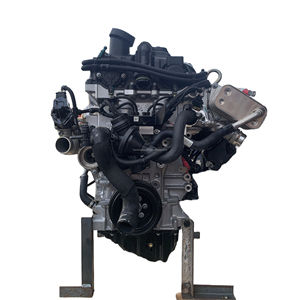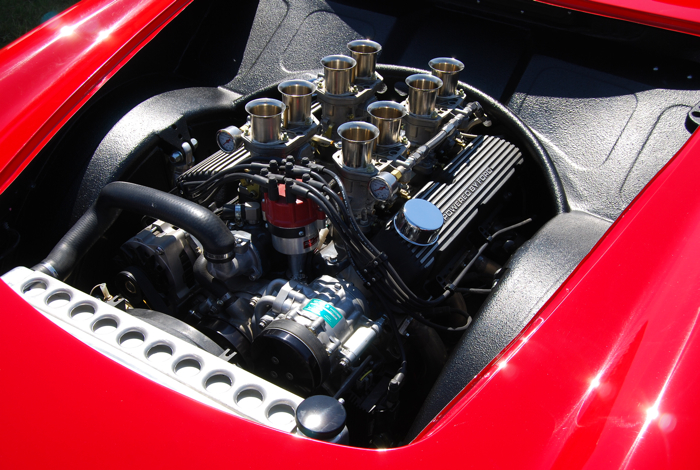Opel Corsa Engine: Efficiency and Reliability for Your Car
Opel Corsa Engine: Efficiency and Reliability for Your Car
Blog Article
Efficient and Effective Tiny Auto Electric Motor Performance Evaluation
Examining the efficiency of tiny vehicle motors is a nuanced task that calls for an eager eye for detail and a deep understanding of automobile engineering concepts. By checking out key metrics such as horsepower and torque, as well as assessing gas effectiveness, we can uncover insights into exactly how little auto engines can be enhanced for peak performance.

Small Auto Motor Performance Metrics
In evaluating the efficiency of small car motors, crucial metrics such as velocity, fuel efficiency, and power output play a critical duty in determining their total effectiveness and suitability for different driving conditions. Acceleration, measured in seconds from 0 to 60 miles per hour, indicates exactly how swiftly a little cars and truck can reach higher speeds, which is vital for merging onto highways or overtaking other vehicles. Fuel performance, typically measured in miles per gallon (MPG), shows exactly how far a small vehicle can travel on a gallon of fuel, influencing running prices and ecological sustainability. Power outcome, revealed in horsepower (HP) or kilowatts (kW), symbolizes the engine's ability to produce the required force to propel the vehicle, affecting its efficiency in different road problems. By examining these efficiency metrics adequately, suppliers, motorists, and vehicle lovers can make informed choices pertaining to the choice and optimization of small car electric motors to meet their details requirements and choices.

Horsepower and Torque Analysis
With an essential function in understanding small car motor torque, horsepower and efficiency analysis offers insight right into the engine's power distribution features. In the context of tiny cars and truck motors, horsepower is essential for identifying acceleration, leading rate, and general performance. By recognizing the relationship between horsepower and torque, auto designers can enhance engine efficiency to meet the certain needs of little automobile applications.
Fuel Performance Examination
The examination of gas performance in little automobile motors plays a critical function in establishing their ecological and economic influence. Gas effectiveness refers to the ability of a vehicle to make use of fuel successfully in connection with the range traveled. In little cars and truck motors, where portable dimension frequently correlates with much better gas economic situation, various variables affect performance. Engine design, weight, the rules of aerodynamics, and driving conditions all add to how successfully fuel is consumed.
To evaluate fuel efficiency, metrics such as miles per gallon (MPG) are commonly made use of. This measurement shows the range a vehicle can travel each of fuel. Little auto motors that achieve higher MPG ratings are thought about a lot more fuel-efficient, causing expense financial savings for vehicle drivers and reduced emissions that benefit the environment. Producers constantly aim to enhance fuel effectiveness through improvements in engine technology, lightweight products, and wind resistant layouts.

Optimizing Small Car Engine Efficiency
Enhancing the effectiveness of tiny auto engines is paramount in making best use of performance and minimizing operational expenses. Maximizing little car engine efficiency involves a holistic technique that thinks about numerous elements such as engine layout, gas monitoring systems, and general automobile dynamics.
One more crucial element in maximizing tiny vehicle engine efficiency is the use of advanced technologies such as turbocharging or crossbreed systems. These innovations can improve power outcome without jeopardizing gas effectiveness, offering an equilibrium between efficiency and economic climate. Maximizing engine efficiency likewise entails improving burning efficiency, decreasing frictional losses, and enhancing thermal monitoring systems.
Future Trends in Small Cars And Truck Motors
In light of advancing vehicle innovations and the continual pursuit of ideal little vehicle engine efficiency, an exploration of future patterns in little cars and truck electric motors becomes crucial - opel corsa engine. One prominent fad on the horizon is the enhancing integration of electrical powertrains in small autos. As the automobile sector shifts in the direction of view sustainability and decreased discharges, more little automobile suppliers are buying electric motor modern technology to improve efficiency and ecological friendliness
Another substantial trend is the advancement of smaller yet more powerful turbocharged engines for little vehicles. By scaling down engine capacities and integrating turbocharging modern technology, car manufacturers can achieve higher power outputs while maintaining gas performance. This trend lines up with the expanding customer demand for little vehicles that supply a vibrant driving experience without compromising on gas economic climate.
Furthermore, the emergence of hybrid powertrains in check over here small cars and trucks is anticipated to get traction in the future. Hybrid systems supply the benefits of both internal combustion engines and electric motors, providing improved efficiency and fuel effectiveness. As advancements in battery innovation continue, tiny car motors are most likely to end up being much more effective and effective, providing to the developing needs of consumers and governing demands for cleaner transport services.
Conclusion
Finally, the analysis of tiny car motor performance metrics such as gas, torque, and horsepower efficiency is vital in optimizing engine performance. By reviewing these aspects, manufacturers can enhance the general performance and power result of small auto electric motors (opel corsa engine). Future patterns in little vehicle motors are likely to concentrate on enhancing performance while keeping gas effectiveness, guaranteeing that small automobiles proceed to be a reputable and economical choice for customers
By checking out crucial metrics such as horsepower and torque, as well as assessing gas efficiency, we can reveal understandings right into exactly how small vehicle engines can be enhanced for peak performance. Maximizing little cars and truck engine performance includes a holistic technique that considers various elements such as engine design, gas monitoring systems, and total vehicle dynamics.In light of advancing automotive next page modern technologies and the constant search of ideal tiny auto engine efficiency, an expedition of future trends in little vehicle motors ends up being essential.In verdict, the evaluation of little auto motor efficiency metrics such as torque, fuel, and horse power performance is crucial in maximizing engine performance. Future patterns in little auto electric motors are likely to focus on enhancing performance while keeping gas effectiveness, ensuring that small autos continue to be a affordable and reputable choice for customers.
Report this page